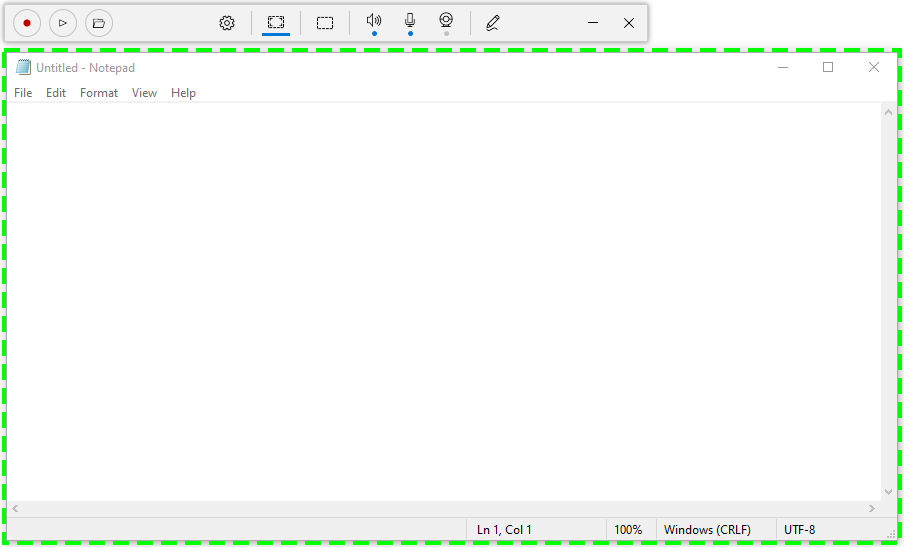Difference between revisions of "Compact view"
From User Manual :: Screenbits
| Line 6: | Line 6: | ||
<br clear=all> | <br clear=all> | ||
| − | Once you switch to compact view, a minimal user-interface replaces the default user-interface | + | Once you switch to compact view, a minimal user-interface replaces the default one. This user-interface appears on top of the screen for ''Screen'', ''Device'' and ''Audio'' capture mode but you can move it to anywhere on the screen. |
[[File:compact-view-2.png|frame|left|Figure 2: Compact view]] | [[File:compact-view-2.png|frame|left|Figure 2: Compact view]] | ||
| Line 12: | Line 12: | ||
| − | For ''Area'' capture mode, it appears on one side of the selected area while a frame is displayed around the selected area. | + | For ''Area'' capture mode, it appears on one side of the selected area while a frame is displayed around the selected area. You can change the selected area by moving and resizing the frame. |
| + | |||
[[File:compact-view.png|frame|left|Figure 3: Compact view (Area capture mode)]] | [[File:compact-view.png|frame|left|Figure 3: Compact view (Area capture mode)]] | ||
<br clear=all> | <br clear=all> | ||
Revision as of 15:04, 21 December 2022
As an alternative to the default user-interface, you can switch to Compact view to use the app by a small user interface.
To switch to compact view, click Compact view button on the top-right side of the application window, next to the minimize/maximize button.
Once you switch to compact view, a minimal user-interface replaces the default one. This user-interface appears on top of the screen for Screen, Device and Audio capture mode but you can move it to anywhere on the screen.
For Area capture mode, it appears on one side of the selected area while a frame is displayed around the selected area. You can change the selected area by moving and resizing the frame.


